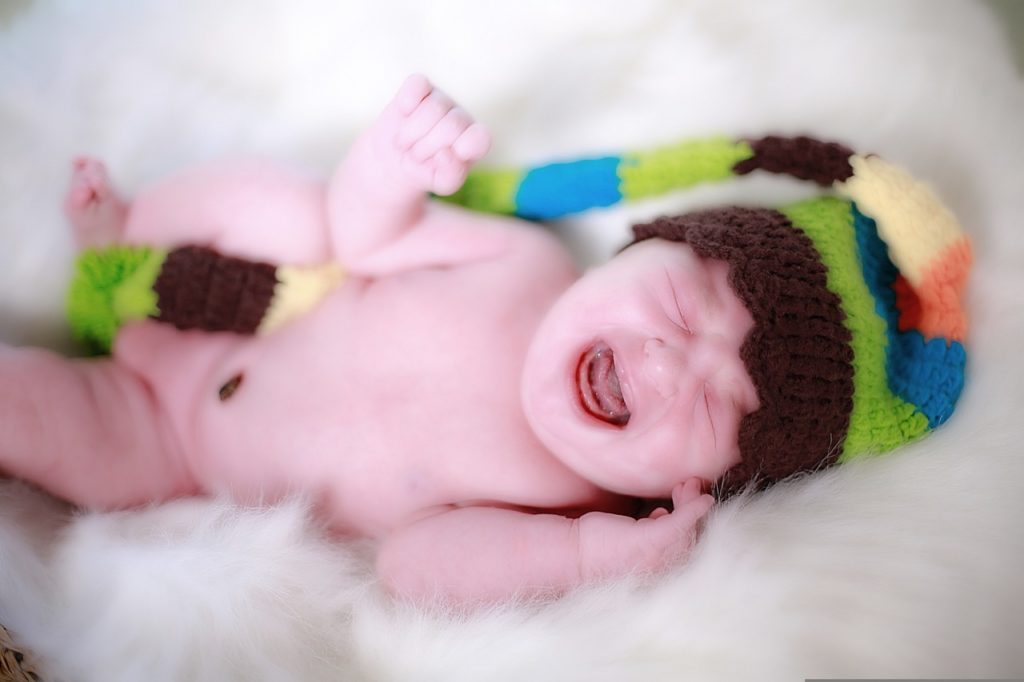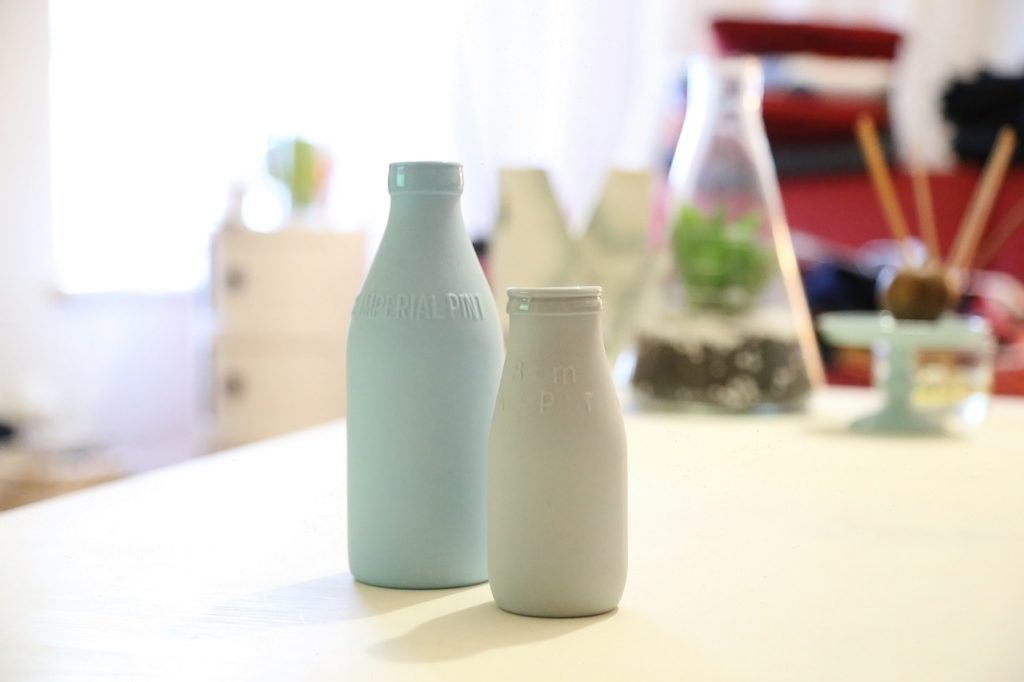If your young child fussing and screaming excessively for what appears to be no apparent reason, then let’s check the best formula for colic. If that is the case, then it sounds like you might be dealing with a colicky infant. As parents, there is nothing more heartbreaking than witnessing the suffering of our most precious children. Because of this, you are undoubtedly thinking about the different ways in which you may make your newborn feel better.
What Is And What Causes Colic?
Colic is defined as excessive or prolonged weeping in infants younger than three months. In medical terms, it is when a baby cries for more than three hours a day, more than three days a week, and at least three weeks. Although there is some wiggle room in the definition of colic, a baby who is experiencing colic often displays the following symptoms:
- Meltdowns for no apparent reason
- Dramatic sobbing is meant to convey an emotional response to pain
- Intense irritability that persists long after sobbing has stopped
- Periodicity that can be anticipated (episodes usually occur in the evening)
- Discoloration of the face
- Discomfort in the body
Since colic can have various causes, pinpointing a single one is difficult. While doctors have a hard time trying to explain all the peculiarities, they have narrowed it down to a few possible causes:
- The digestive system of a newborn is not mature yet.
- The gut’s good bacteria are all out of whack.
- Allergies to food
- What the mother eats while pregnant
- Nutritional excess or deficiency
- Migraine attacks that start in childhood
- Tension and worry within the family

You Might Like: When Do Babies Stop Wearing Onesies?
The Best Formula For Colic: Top 7
If you have a baby who suffers from colic, one option for reducing the discomfort associated with the condition is to use a specific formula. Here are some of my top recommendations for the most effective infant formulas for treating colic, in case you’re interested in giving it a shot.
PurAmino Hypoallergenic Formula
The hypoallergenic form of PurAmino is an excellent choice for the nutrition of infants who suffer from severe food allergies. In essence, it is loaded to the brim with all of the vital nutrients that your infant might be lacking in their diet as a result of their intolerance to cow’s milk. There is also a formula designed specifically for toddlers available for infants who suffer from colic and require further help as they grow older.
Similac Alimentum
Because it contains partially digested proteins and medium-chain triglycerides (MCTs), which are easier for sensitive infants to process, this product is high on the list of candidates for the title of the best formula for colic and reflux.
Elecare Formula
Because it is a nutritionally full, amino-acid-based formula that is developed for newborns who cannot handle intact or hydrolyzed protein, EleCare is among the best baby milk for treating colic and reflux.
Earth’s Best
This reduced-lactose formula was developed especially for extremely fussy infants, who have a lot of gas or cry a lot. Not only is it simpler to digest for young children’s stomachs, but it also has iron and ARA, and DHA and is fortified with it. If your infant has a milk protein allergy that has been diagnosed, Earth’s Best also manufactures a partially hydrolyzed formula that might be a better option for your family to consider.
HiPP Dutch
Because it contains components that are comparable to those found in breast milk, such as lactobacillus fermentum (also known as probiotics) and galactooligosaccharides, this is some of the best baby milk for treating colic (prebiotics). Although HiPP Dutch does not have hypoallergenic properties, it is designed to be as all-natural and as similar to breastmilk as possible, which may be enough to alleviate the symptoms of colic in some babies. The most common cause of colic in babies is baby formulas that contain ingredients that are difficult to digest.
Kendamil Goat
Because Kendamil may be helpful as a formula alternative for infants who suffer from colic, it is quickly becoming increasingly popular. Kendamil Goat is ideal for infants who have an intolerance to cow’s milk since it contains high-quality ingredients, provides complete and balanced nourishment, and has proteins that are simple to digest.
Jovie Organic
This goat milk formula for infants who suffer from colic has an excellent nutritional profile and contains proteins that are simple to digest. This formula, which is made from organic goat’s milk, is an excellent alternative for infants who have an intolerance to cow’s milk.
Check This: Holle Goat Milk Formula- Which Stage Is Correct for Baby?
Can Baby Formulas Cause Colic?
Colic can be caused when a baby is bottle-fed too quickly (for example, when the entire bottle is consumed in less than 20 minutes) or when too much formula is given to the baby. The symptoms of colic could be caused by your baby’s reaction to the lactose or milk sugar that is contained in ordinary infant formula. Alternatively, your baby could have a food allergy, either of which would have the same effect. In addition, if your infant is allergic to cow’s milk, giving them formula milk that is manufactured from dairy products may cause them to experience colic symptoms.
Signs Of Colic In Babies
It might be difficult to determine whether or not your baby has colic because mild weeping and fussing are typical behaviors for the vast majority of infants. In addition to frequent weeping, the following are other symptoms that your infant may have colic:
- Having a lot of flatulence or frequently burping
- having a face that is flushed and brilliant red
- Having a stomach that is too tight
- crying while pulling their knees up to their chest and curling their legs.
- They were clenching their fists tightly while they sobbed.
See Also: Enfamil AR vs Gentlease: Which Formula Is More Suitable for Your Baby?
What To Check When Choosing A Formula
There are a few things you should look for when selecting a formula for colic, even though the most effective formula for your fussy baby will depend on their requirements:
- Products that contain both probiotics (such as lactobacillus reuteri) and prebiotics, which work together to make digestion easier
- Anti-reflux milk
- If your infant is displaying symptoms of lactose intolerance, you should consider switching to lactose-free milk.
- Organic components are beneficial if your infant suffers from food intolerances
- Additives that are capable of boosting growth (DHA, ARA, or iron)
- Acceptance from the Federal Drug Administration

Beware Of These Ingredients
In your search for the most effective formula for colic, you should avoid options that include:
- No artificial sweeteners or syrup solids are added (though this isn’t always possible with allergic formulas).
- Preservatives
- Containing genetically modified organisms
- Soy (since this can be an allergy for certain newborns) (as this can be an allergen for some babies)
- Ingredients that were extracted using hexane
Supplementing breast milk with formula means you should avoid the components listed above, and you may also need to make dietary changes to ensure the safety of your breast milk. This is because what a mother eats can affect her breast milk.
If you decide to nurse your baby, eliminating spices, caffeine, and alcohol from your diet may reduce colic symptoms in the infant.
If your infant seems to be reacting to something in your breastmilk, it may be best for you to avoid eating common allergens including cow’s milk, eggs, wheat, nuts, soy, and fish. Foods that are known to cause intestinal gas, including cruciferous vegetables, are avoided by some mothers.
In addition to making changes to your diet, there are a few home treatments for colic in babies that you should avoid. Dicyclomine and dicycloverine, medications used to relieve stomach cramps, should not be given to a colicky newborn since they have been linked to respiratory problems. Star anise tea should also be avoided since some varieties might be hazardous to infants.
Related: Enfamil Enspire VS Neuropro: What Are The Differences?
The Verdict
There is no single perfect formula for colic, and what works for one fussy baby might not work for another. However, by paying attention to your infant’s symptoms and avoiding common allergens, you can find a solution that will soothe their tummy troubles and help them (and you) get some much-needed rest.











